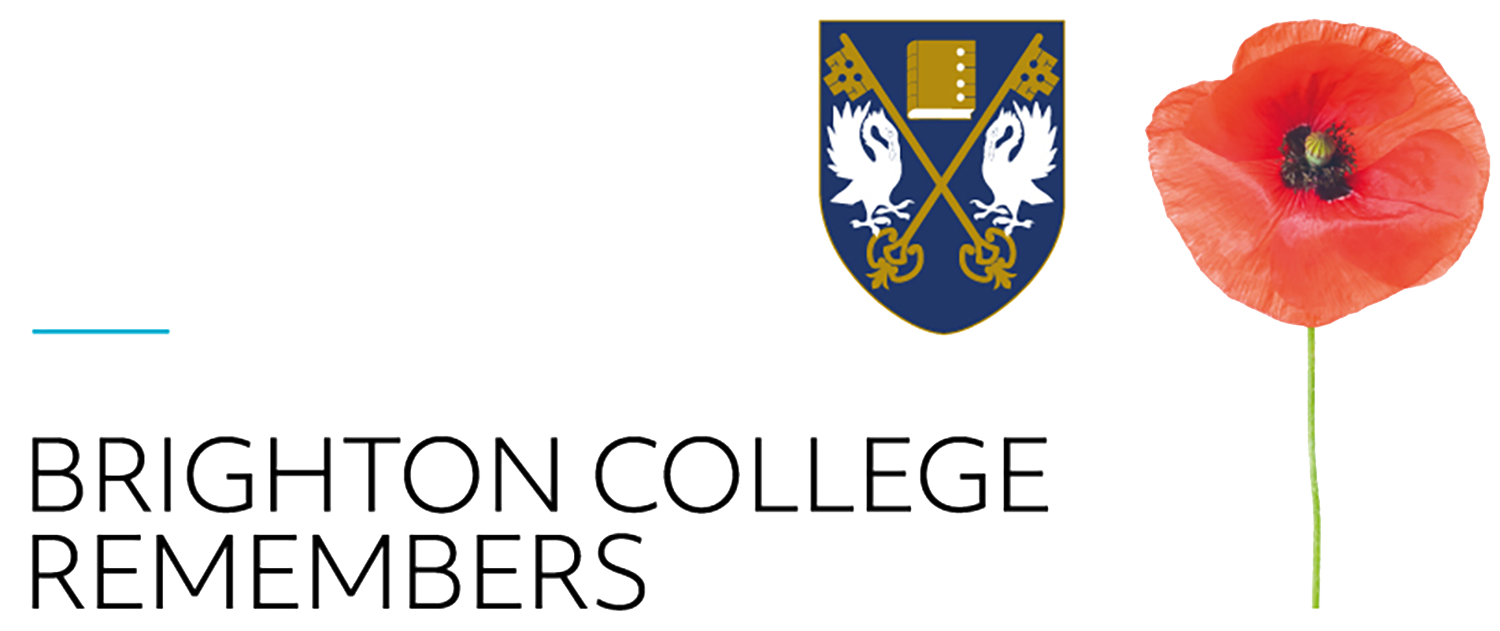Midshipman, Royal Navy
Born: July 15th 1897
Died: May 31st 1916
Age at Death: 18
Killed in action at the Battle of Jutland, May 31st 1916
H.M.S. Indefatigable. Only two of the 1,019 crew survived.
Younger brother to Henry Hall Griffith (Ha.1901-09).
A donation to the memorial statue has been made in honour of this soldier by the Tiplady Family.
Obituary Brightonian XV December, 1917 (printed alongside that of his brother).
W.L. Griffith (aged 18 years and 10 months) was the youngest son of Arthur Foster Griffith and Caroline Griffith, of 59 Montpelier Road, Brighton. From the Junior House, Brighton College, he went direct to Osborne, passing on to Dartmouth in due course two years later. He had just finished his six terms there when war broke out. He was at once mobilised in the HMS Doris, from which he was soon afterwards transferred to HMS Glory, the flagship on the Atlantic station, based on Halifax, N.S. Having a good knowledge of German, he acted as interpreter on the various prizes, and in decoding German wireless messages. In addition to general patrol work, the Glory was the flagship of the escort which convoyed the first Canadian contingent across the western half of the Atlantic, handing them over to a home escort for the other half. In June, 1915, the German sea raiders having been effectually dealt with by the other sections of the fleet, the Glory went to the Eastern Mediterranean, where he saw exceptionally interesting work and active service. He was in command of a prize crew for a considerable time; he was also detailed to accompany the heads of the great Russian Monastery on Mt. Ethos, which monastery he was shown over- a rare experience. He took part in the Suvla Bay evacuation, where he was the last man off, having been landed during the last night in command of a Maxim gun crew to bring in stragglers, and guard one of the two roads constructed into the hills. In April, 1916, he returned to England on short leave, and was transferred to HMS Indefatigable, which he joined on April 25th. She took part in the great Jutland fight, May 31st, and was blown up very early in the battle, only two of the crew surviving, both taken prisoners by the Germans. In his official certificates from the Glory he is called "a promising young officer".
He loved us and gave himself for us.
Midshipman William Llewelyn Griffith
The younger brother of Captain Henry Griffith, at the age of thirteen William Griffith went straight to the RNC Osborne, Isle of Wight to finish his education. When war broke out he was immediately posted to HMS Doris and afterwards HMS Glory, both based in Halifax Nova Scotia. In 1915 HMS Glory moved to the Eastern Mediterranean where he assisted in the evacuation of British and Australian troops following the failure of the Gallipoli campaign in December 1915. In April, 1916, he returned to England on leave and was then transferred to the battle cruiser HMS Indefatigable, which he joined on April 25th. On May 31st 1916 HMS Indefatigable was one of the battle cruisers in Admiral Beatty’s squadron which engaged the German fleet at the start of the Battle of Jutland. William Griffith, along with over a thousand other British sailors, lost his life when she blew up following a direct hit on one of her magazines by a shell fired by the German battle cruiser Von Der Tann shortly after the action began.
William Griffith is commemorated on Panel 10 of the Plymouth Naval Memorial.
Source: LEST WE FORGET PROJECT, Brighton College 2014/15


The Battle of Jutland (31 May - 1 June 1916) was the largest naval battle of the First World War. The Germans damaged Beatty’s flagship, HMS Lion, and sank HMS Indefatigable and HMS Queen Mary, both of which blew up when German shells hit their ammunition magazines. All 57 officers and 960 seamen of the crew of the Indefatigable were lost – including Midshipmap William Llewelyn Griffith (Ha. 1905-10), aged 18.